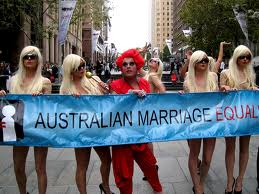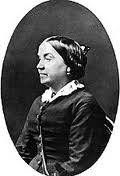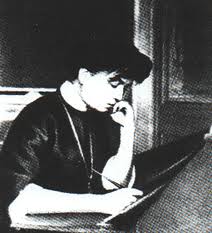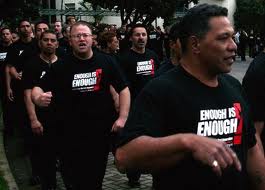 Ian Anderson, Workers Party member
Ian Anderson, Workers Party member
Internationally, demands for gay marriage are galvanising important mass movements. These movements develop from diverse origins: Australia’s Equal Love campaign regularly mobilises thousands, while same-sex marriage is one of the constitutional demands in Nepal’s ongoing revolutionary struggle. In countries such as Sweden and South Africa, activists have achieved the demand for gay marriage; in countries such as New Zealand, activists have achieved an equivalent in the Civil Union Act.
These achievements leave important question marks. The Civil Union Act did not grant adoption rights to same-sex couples; did not grant any rights to polyamorous relationships; both Civil Unions and marriages are fairly uncommon. Ultimately the new status quo leads many in the queer movement back to questioning marriage itself. Activists in Wellington’s newly formed Queer Avengers, which mobilised hundreds for its Queer The Night march, have discussed ‘repeal of the Marriage Act’ as a possible slogan. It’s important in this context to tease out the historical nature of marriage, and the arguments for marriage abolition.
This piece aims to provide a brief review of the Marxist take on marriage, followed by a discussion of its historical development in New Zealand. The aim is to establish the conditions in New Zealand today, the significance of reforms like the Civil Union Act, and the relevance of calls to repeal the Marriage Act.
‘Traditional’ monogamous marriage

Marxists have written screeds on the marriage question, but the definitive early work is Engels’ Origin of Family, Private Property and the State. This draws on extensive research by Marx, Engels and anthropologist Lewis H Morgan, to flesh out the basis of the modern nuclear family. Engels’ guiding logic is that family structures are not fixed, not permanent or natural, but transform based on the requirements of class society.
Marx and Engels argued that the first division of labour was the gender division, between men and women. In Origin, Engels expands on this to argue that monogamous marriage is an important basis for class society:
The first class opposition that appears in history coincides with the development of the antagonism between man and woman in monogamous marriage.
Engels notes the division of labour within monogamous marriage, a division between domestic toil and wage labour. Ultimately he argues for the abolition of marriage as an essential condition of women’s liberation and the end of class society.
While Engels does not discuss queer oppression, his observations are useful in a queer analysis. In particular he identifies the nuclear family as a distinct historical development, driven by economic factors, highlighting a range of family structures throughout human history. In other words, monogamous marriage is not traditional but historically specific, and its day will pass. ‘Traditional’ marriage is just one form of relationship, given privilege ultimately to maintain property relations through the husband.

Bolshevik revolutionary Alexandra Kollontai advanced probably the most significant expansion of Engels’ theory in a range of articles including Communism and the Family, Sexual Relations and the Class Struggle and so on. Unlike Engels, Kollontai’s work on the family drew from her experience of socialist transformation; rather than anthropology; she tended to focus on the immediate demands of the revolution.
Kollontai argued in Communism and the Family that private domestic tasks, including cleaning and child-rearing, should become a collective responsibility. She noted that those with buying power already had access to child-care, to restaurants, to cleaners, and argued for collectivising these services: “the four categories of housework are doomed to extinction with the victory of communism.”
Decline of marriage?
Society in every country has shifted since Kollontai’s time and further since Engels’, bringing with it shifts in marriage and family structure. The New Zealand Marriage Act of 1854 was very much a colonial transplant from Britain, similar to what Engels dealt with, but the subsequent Marriage Act of 1955 has been revised many times in the last half-century. Moreover marriage appears in decline, with around one third of marriages ending in divorce, and a growing number of couples living together in de facto unions.
This is linked to a huge shift in social relations since the end of the post-war boom. The previous “wage earner welfare state” was eroded to pave the way for a flexible accumulation scheme, called neoliberalism, or Rogernomics in New Zealand. Over this period more women entered the paid work-force, and family structures transformed.
However, Engels’ analysis of the division between domestic and wage labour is not so dated as it first appears. In fact, Engels noted that the expansion of industry in the 19th Century led to more women entering paid employment, and observed a division now referred to as the “work/life balance” –
if she carries out her duties in the private service of her family, she remains excluded from public production and unable to earn; and if she wants to take part in public production and earn independently, she cannot carry out family duties.
Some now treat this balancing act as a product of feminism, as if feminists argue it is easy to balance child-care with paid employment: We are the daughters of feminists who said “You can be anything,” and we heard “You have to be everything.”
As Engels observed however, this difficulty in balancing domestic labour with wage labour is a product of capitalism, which privatises family relationships. Capitalism tends further and further towards atomised family units, eroding communal family structures. Time Use Surveys and Census statistics show that women still perform the bulk of private unpaid labour, in particular care for children and the elderly.
 As conditions become increasingly precarious, the family is an important site of struggle. Reactionaries cling to monogamous heterosexual marriage as a bastion of stability, while reformers and revolutionaries chip away at the edifice from various angles – begging the question of what we want to carve in its place.
As conditions become increasingly precarious, the family is an important site of struggle. Reactionaries cling to monogamous heterosexual marriage as a bastion of stability, while reformers and revolutionaries chip away at the edifice from various angles – begging the question of what we want to carve in its place.
Reform (and revolution)
As noted, marriage in New Zealand has undergone various progressive reforms. Some of these take the form of direct amendments to the Marriage Act. However many use separate legislation, constitutional arguments or wider social change, to challenge the limitations placed by the capitalist state on consensual relationships and family structures.
Many of these reforms challenged women’s status as property. Through the Married Women’s Property Act 1894, women won the right to own property within marriage. This early victory for women’s rights was not followed up for nearly 100 years: divorce remained a privilege for the wealthy until 1982, and rape within marriage was legal until 1985.
Various states have also granted some assistance for unpaid domestic workers – free childcare for example. However these services are under attack as capitalism goes into crisis. The privatisation of the family, and domestic labour, remains a major drive in capitalism.

Along with the struggle to recognise married women as human, queer activists have also fought for a greater range of relationships to be recognised. In 1996 a lesbian couple held a wedding and applied for a marriage licence on the basis that the Marriage Act does not specify gender, but were overruled by the High Court. More famously, the Civil Union & Relationships Acts 2004 achieved an equivalent to marriage for same-sex and de facto couples. This was only supported by a slim majority in opinion polls and was a conscience vote that split the major parties.
At the time, lesbian Marilyn Waring, a former National MP who has written significant contributions on women’s liberation, argued that queer activists should instead focus on amending the Marriage Act. Moreover the Relationships Act actually limited access to the DPB for many women, as their partners were now recognised: even by recognising relationships, the state seeks to regulate them.

There are other limitations to these reforms. Same-sex couples still have no right to adopt – in fact the Adoption Act has not been amended since 1955. Polyamorous relationships, one of the oldest forms of human relationship, are not legally recognised. In addition intersex and genderqueer folks, those who aren’t solely male or female, have no legal recognition.
Ultimately, whatever piecemeal reforms we might make, the fundamental contradiction will remain: the right of the ruling class to sanction and set terms for consensual relationships, while excluding others. Sections of the ruling class may support gay marriage, but they retain the right to maintain property relations by regulating consensual relationships. Arguably, at this stage the Marriage Act is less oppressive for what it includes than for what it excludes.
Socialists must argue for a clean slate under which all consensual relationships are recognised, between any number of partners of any gender identity. While the Marriage Act exists, we must support progressive reforms. Ultimately, we must aim for abolition of the Marriage Act.

Interesting and informative article – thanks. This outline of the history along with the recent survey showing that there is a high level of support for gay marriage shows that there is and will be a lot of support when we deal with what will be the inevitable reaction against it.